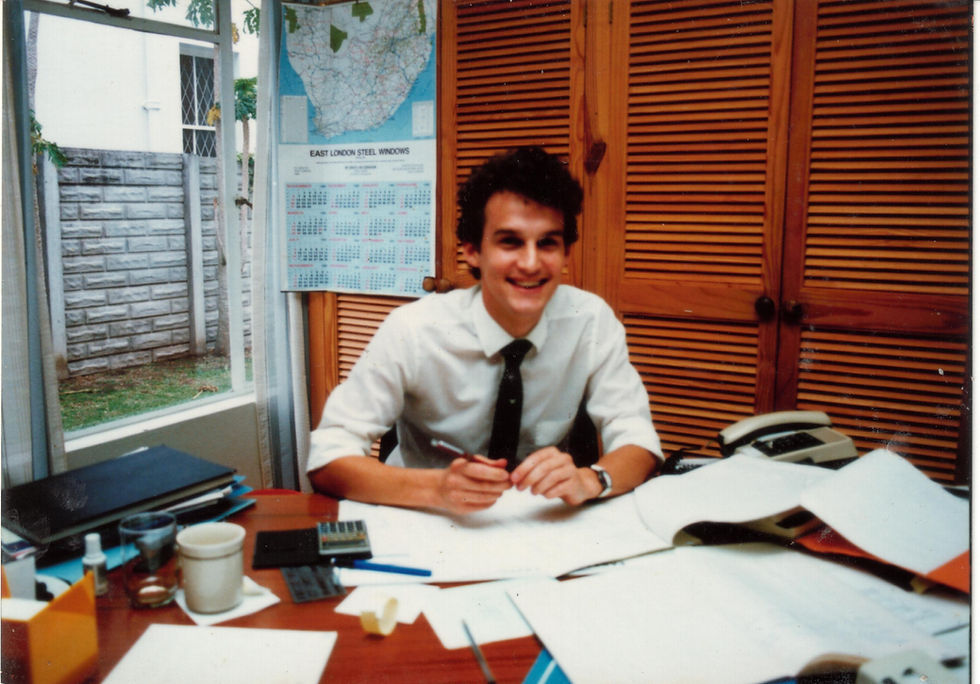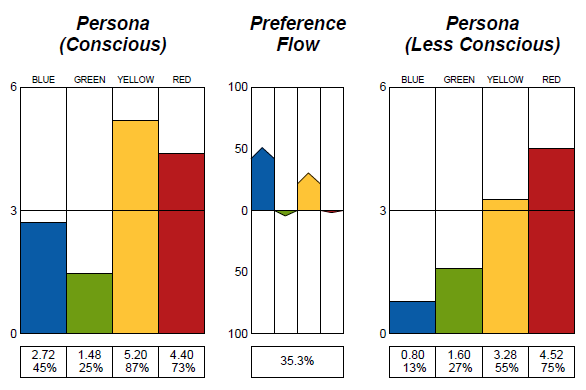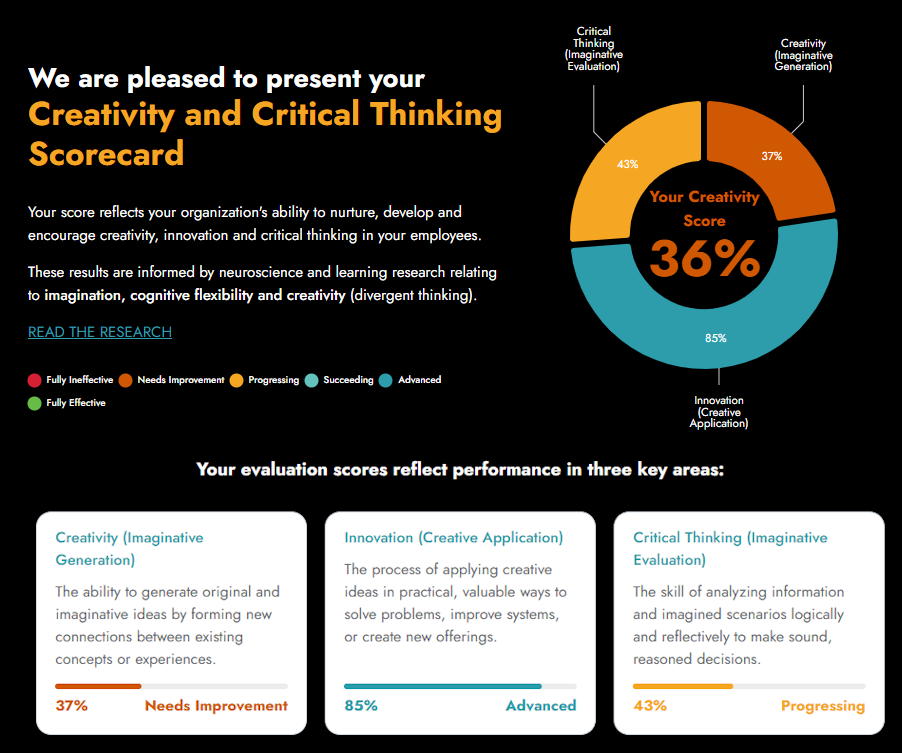Fit in or F-Off: From Accountant to Chief Imagination Officer
- Russell Cullingworth

- Jun 9, 2025
- 4 min read
Updated: Sep 10, 2025
When I looked at my two personas, and the amount of energy it was taking me to dial down my energy, enthusiasm, passion and creativity so that I looked more "accountant-like", I decided that day that I needed to leave the profession forever.
“Fit in or Fuck Off!”, said the managing partner of a top 5 accounting firm. And he meant it.
This is a true story. I was 21 and interviewing for what was called “articles” – a five-year version of an apprenticeship for accountants. This "esteemed" partner was to be my respected guide and mentor as I learned to become a professional chartered accountant, with a strong ethical and moral compass – at least that’s what the textbooks told me. I was also studying for my Bachelor of Accounting Science (BCompt) undergraduate degree.

Mr. Watson sat across from me in the interview. He was large and intimidating, and sweating through his shirt and tie. He smiled proudly and said: “Well Russell, we have a FIFO policy here.” He stared at me with a smug look on his face.
From my studies, I knew what FIFO meant – a well-established inventory accounting term for “First-In, First-Out.” I was about to ask him what he meant, he gave an evil grin and said “Fit in or Fuck Off! If you don’t fit in here, you’re gone.” [Excuse the expletives - his statement is quoted verbatim in context]
There’s a reason I’m sharing this story. I didn’t fit in.
In high-school, I’d been the lead actor in the school play; a trumpet player in the school band and a singer in the boys’ choir. When I came home, I played guitar and sang, and I sketched Mad Magazine comics and stuck them on my walls. I constantly crafted and made stuff, like sticking matchsticks together with wax to build a model wooden house (I almost burned the house down, but that’s another story).
When I finished school my dad and eldest brother advised me on my career choice – become an Accountant!
I’m a people-pleaser. It’s a deeply rooted blessing and a curse. I listened to the advice about a solid career choice, great opportunities, always have work, becoming important and making lots of money – and I agreed. I convinced myself that I wanted to be that sharp looking man in a 3-piece suit and a briefcase. The smartest man in the room.
As a result, I completely lost sight of myself and who I was. I also lost the most important part of me – my creativity. For 20 years, I did very little to expand my imagination, innovate and be creative.
Having two daughters was my saving grace, because I enjoyed playing with them and making things for them – my favorites were a treehouse that wrapped around a tree, and a little cart they could tow behind their bicycle. These allowed me some outlet to express and develop my creativity.
Back to “fitting in” – After trying for 10 years to mold myself into a professional accountant, by the time I was 30 I was realizing my mistake, and looking for a way out. Although I had succeeded in mastering the skills, I'd not been willing to change myself successfully to fit in. My performance evaluations never mentioned any issues with my technical skills or meeting deadlines - I rarely made any mistakes in those areas. The negative feedback was always about my personality.
This left me confused and frustrated. How do I change my personality? Do I even want to?
I was looking at ways to "F-off" out of accounting – but I still had a mortgage to pay and family to provide for.
I applied for jobs outside of accounting – but the response was “you’re an accountant, why are you applying for this job?”
It took me 10 more years to finally break free, following an Insights Discovery (Jungian psychology) session that revealed my true and natural persona and gifts. One of the most powerful aspects of Jung's psychology is excluded from many psychometric programs (like Myers-Briggs, DISC or Colors) - the two persona model.
Jung's work found that we have two persona's: a conscious persona which is the "mask" we put on for the world; and a less-conscious persona that is who we are instinctively, when we're not "controlling" how we show up. Wearing the conscious persona takes a certain amount of energy, depending on how far or close it is to your less conscious persona.

When I looked at my two personas, and the amount of energy it was taking me to dial down my energy, enthusiasm, passion and creativity so that I looked more "accountant-like", I decided that day that I needed to leave the profession forever.
REDISCOVERING CREATIVITY About a year after leaving the profession, I experienced a creativity explosion – I started sketching again, started painting, bought a new guitar and started playing and singing again.

I was teaching Emotional Intelligence at the time, and sketched my own images for my PowerPoint slides. This eventually led to founding ProDIo, the first company in the world to produce neuroscience backed audio learning using imagination-based storytelling.
Through ProDio, as the self-appointed “Chief Imagination Officer” (unofficial), I immerse myself in dreaming, imagining, creative writing and storytelling using our nine forms of audio media we call StoryStyle™. I’m finally learning to bring my authentic fun and creativity into my work.
Now, more than ever, many professions - accounting, engineering, healthcare, marketing and entrepreneurs - desperately need creativity, innovation and critical thinking. While AI is threatening many white-collar professions, these top skills will become essential in finding innovative ways to partner their professions with AI for future relevancy – otherwise they are at risk of becoming completely redundant.
Neuroscience shows that creativity, innovation and critical thinking can all be developed through practice and exercising imagination, like reading, listening to audio storytelling or StoryStyle™ audio learning, which actively engages imagination.
GET CREATIVE! Take this free Creativity and Critical Thinking Scorecard to assess your organization’s ability to nurture and develop Creativity, Innovation and Critical Thinking.

Russell Cullingworth, CEO (and Chief Imagination Officer) ProDio Audio Learning Inc.

Great piece, very important not forgetting yourself, and making sure you are a good fit.